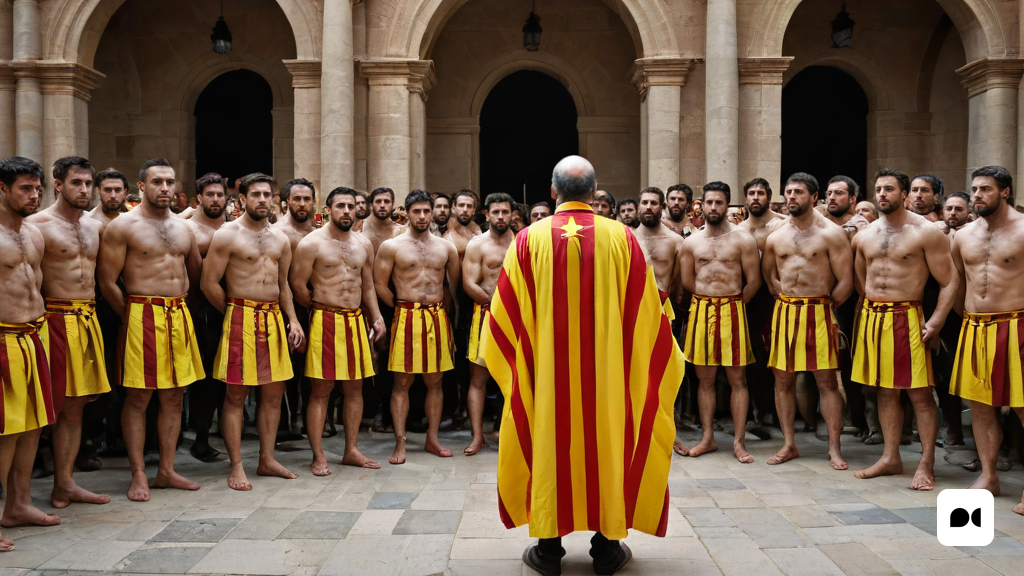The Wealth of Cultural Diversity
In a world marked by the fear of what is different and the tendency to close borders, Cardinal José Tolentino de Mendonça, Prefect of the Vatican Dicastery for Culture and Education, advocates a change of outlook towards immigration. For him, immigrants do not arrive empty-handed, but with a cultural and human wealth that can enrich the societies that welcome them.
Cardinal Tolentino highlights the fundamental role of Catholic schools in welcoming and integrating the children of immigrants, providing them with training and opportunities for the future. He emphasizes that the quality of a society is measured by respect for the rights of the most vulnerable and that societies that close their doors to immigrants often have poor spiritual quality.
The Biblical Roots of Welcome
The Bible, according to Cardinal Tolentino, offers a gallery of immigrants who exemplify the human greatness that can arise from migrations. Abraham, Moses, Jesus, Paul and Peter are figures that embody the human experience of migration, an experience that has been a constant in the history of humanity.
Cardinal Tolentino emphasizes the importance of remembering one’s own immigration stories to raise awareness about the need to create a culture of welcome and integration. Welcoming is the first step, but then it is essential to integrate, which implies thinking about a concrete future for those who arrive, where they can feel responsible for their lives, their children and their dreams.
The Dicastery for Culture and Education: A Bridge between Culture and Education
The Dicastery, created by Pope Francis, seeks to create synergies between culture and education, two wings that serve the human person. Culture, with its diverse codes, languages, arts and thoughts, is the expression of our humanity, while education is the fundamental tool to build the human experience.
Cardinal Tolentino highlights the importance of both wings to fly, to have a human experience worthy of the name.
Technology: Opportunities and Challenges
Pope Francis, according to Cardinal Tolentino, does not believe that we are living in a time of change, but rather a change of era, a change of paradigm. We must accept that history changes and that the supports are different.
Technological inventions, the fruit of human reason, are necessary and beneficial. However, it is crucial not to just look at the past, thinking it was better, or at the future, thinking it will be chaotic. We must look with serenity, open mind and heart, to identify the advantages and good things that are coming, which can make people’s lives easier and promote social justice.
The use of technology, so that it humanizes instead of dehumanizes, must be guided by an ethical project and oriented to a cultural or spiritual project. We must use technology responsibly and thoughtfully, aware of its dangers and limitations.
Technology as an Ally in the Transmission of Religious Heritage
In an era marked by religious illiteracy, new technologies can be a valuable ally to make the rich religious heritage accessible. Cardinal Tolentino emphasizes the need for a new mystagogy, a new initiation into the Christian kerygma, since a significant part of the population, especially the young, has not had an initiation.
Great museums, with their religious treasures, have a responsibility to help visitors understand what they see. New technologies can be an effective tool for this new cultural mystagogy of Christianity, which our societies need.
The Holy Family: A Testimony of Beauty and Mystery
Cardinal Tolentino, who has had the opportunity to visit the Sagrada Familia, highlights its importance as a reference point for anonymous, not explicitly religious, pilgrimages. It is impossible to visit this place without feeling a sense of meaning and mystery.
Religious heritage, and the Holy Family in particular, become a training school for spiritual life in contemporary times. Art, through its architectural and artistic forms, speaks a language that transcends words, leading visitors towards surprise, an essential path of pilgrimage.
Nature: A Path to God
Nature has always been a path to God, a path that we are rediscovering today. Pope Francis’ encyclical Laudato Si’ denounces despotic anthropocentrism and promotes a sensible anthropocentrism, which makes us responsible caretakers of the common home.
Today, thank God, there is a new social consciousness and an awareness of social sins against nature. We understand that actions against natural, climatic and environmental balances are also sins that we must recognize. Pope Francis teaches us that we must have a systemic vision, understanding that we are not isolated, but that we are part of a system.
Hope in Times of Crisis
In the midst of climate crises, wars and injustices, how do we find hope? Cardinal Tolentino finds inspiration in Charles Péguy’s book, The Portico of the Second Virtue, which describes hope as a small light that returns God’s gaze to us.
Men and women of hope remind us of God’s gaze, because they understand that in historical transitions, no matter how difficult they may be, the final word is salvation. As Christians, we are ‘mortgaged’ to hope, because we know that human history is a history redeemed by Jesus Christ.
Writing as a Source of Inspiration
For Cardinal Tolentino, the Bible is his first library. Value the diversity of its literary genres, its characters and the depth of its words. It has an original status as a word of revelation and is its daily bread.
Dr. Armand Puig: A Great Christian Intellectual
Cardinal Tolentino pays tribute to Dr. Armand Puig, a man of great culture, passionate about the Word of God and its transmission. He highlights his erudition, his spirituality and his love for the Catalan land, its traditions, its authors and its language.
Cardinal Tolentino thanks Dr. Puig for his response to the Holy Father’s call to serve the AVEPRO agency, which promotes the qualification of faculties in ecclesiastical institutions. He recognizes his competence and audacity in this work.

